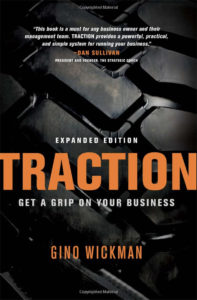
Listen to the podcast here:
Having a management system for screening renters can save you loads of time and effort. Cliff Hayden, the Founder of ShowMeTheRental.com, shares some tips on qualifying tenants in the most cost-efficient manner, revealing the questions that you should ask when screening them. He also recounts some common mistakes they made when screening clients and outlines their process from tenant application to automated showing. Ultimately, Cliff says sticking to the Golden Rule to provide value to renters, having mentors, and getting education are the things that contribute to overall success.
Our Gracious Sponsor:
Are you tired of answering emails from investors about when they’ll receive their K-1s?
Let The Real Estate CPA handle the accounting and taxes on your next syndication and they’ll file your tax returns by March 15th so you can get K-1s to your investors by the individual filing deadline on April 15th.
Not only will this reduce headaches, but it will help you retain investors over the long-term by improving investor experience.
The Real Estate CPA is now offering a Special Virtual Workshop to the listeners of The Real Estate Syndication Show on How to Answer Tax Related Questions from Your Investors!
Learn more today by visiting: http://bit.ly/Real_Estate_CPA
—
Watch the episode here:
Screening Renters with Cliff Hayden
Our guest is Cliff Hayden. Thanks for being on the show, Cliff.
Thanks, Whitney. I’m excited to be here.
I’m excited to have you on, Cliff. As a real estate investor, he is the Founder of ShowMeTheRental.com, an online software that automates the most difficult part of the property management, finding and screening qualified leads. After quitting his day job to pursue real estate investing as a career, Cliff grew tired of taking hundreds of calls and emails from unqualified leads just to find that one good renter. When he couldn’t find a better way to manage leads, he built it. Since developing Show Me The Rental, Cliff is able to focus on his business and let the website manage the leads so that he could spend more quality time with people he loves. Cliff, tell the audience a little more about who you are. I want us to be able to dive into some ways that we should be qualifying tenants, even your program and how that works.
I am happily married and the father of five beautiful kids. With five kids, you’ve got a lot of moving pieces, not only in the business but also in life. We’ve always got practices or things going on, which takes up a lot of time. As I was spending too much time in my business, I had my priorities out of whack. I was not spending enough time at home with my kids and working too much. Over the last five or six years, I developed systems and different lifestyle choices that I’ve made to make my life a lot funner. I know it’s not a word, but it’s my word. Life is a lot funner now because I’ve built a lifestyle around my life and not my business. That’s a little bit about me.
That’s entrepreneurial right there. You created systems to get your priorities back in check, to be able to create more time where you wanted it. A lot of us are at home with our families. Your bio said you’re tired of taking hundreds of calls and emails. You couldn’t find a better way to manage leads so you built it. That’s an entrepreneur at its best right there. Give us a little history to some of the frustrations you were having as trying to get these units rented, that type of things, all these calls, hundreds of calls. What this system does and some things that we should be doing even if we don’t have a system like this.
The biggest problem I had with my business is I come from the lower middle class. Money was always the goal when I first started in real estate. I thought, “If I had $1 million if I had this many houses, if I did all this stuff, everything is magic. It’s going to take care of itself.” I got pretty close to all that stuff. I was miserable. My home life was miserable. I have five kids. I was providing for my family, but I wasn’t providing for my family. I would work all day and come home at night. We sat down and eat dinner. My phone was ringing. I was getting text messages. I was getting emails. My wife was getting irritated at me because I was not eating dinner. I was answering phones.
She was getting mad and I’d go, “Do you see this food on the table? It’s how we get it here.” It was nonstop conflict back and forth. I’d go, “There’s got to be something better than this.” We noticed we had empty rental houses, but we kept asking the same questions over and over. Ours were, “How long have you been in your job? Where do you live now? How much is that current rent? How much money do you have in the bank?” We would ask certain questions over and over. If they didn’t have the right answers, we would shoo them down the road. We would spend all kinds of time prescreening people that weren’t qualified to see our houses. I thought, “There’s got to be something out there I can buy that does this for us.”
I could not find anything I could buy because I looked and I looked because I did not want to create this. It’s another job I didn’t want to do. There was nothing out there. I thought people would pay a lot of money to get their time back. I watched The Avengers. My kids are big into Avengers Endgame and one of the quotes in that was, “All the money in the world can’t buy a second of time.” I spent my last several years figuring out how to get my time back because that’s why we’re doing all this. I learned that if you don’t have a lot of debt and you have a good team in place, if people you trust had integrity, you don’t need that much money to do what you want to do.
It’s not much different than having $10,000, $15,000, $20,000 a month than having $50,000, $60,000, $70,000 a month. If you have no debt in bringing in that money, you can live a comfortable life depending on what your spending habits are. For the average person, you can do pretty well with that money coming in. I spent the last several years developing those systems, those syndications like Show Me The Rental so I can have time. I’d be at home every day at 3:00 to get my kids off the bus, do homework with them and spend time. We go on vacations all summer long because my wife works for the school board. That’s the gist. That’s what my business and my life are about now.
I love how you mentioned that you made money your goal. You said, “If I have this much money, this is what could happen.” You reached that and you’re still miserable. What was supposed to change once I hit that goal? It was either more complicated or it didn’t do what you thought it was going to do. A lot of us have probably lived that and experienced that to our priorities, to get out of whack. What are we doing all this for? You were taking all these calls, you were trying to screen all these tenants and managing these properties. Help us to better screen attendant. Tell us some of the questions that we should be thinking about as we’re screening tenants. Could you walk us through some of those or help us create a system also?
I tell everybody my system is going to be different than your system. Everybody’s strategy is a little different. Everybody’s end game is a little different. For me, you heard me talk before about my lifestyle. What we do is buy nice rental houses in nice neighborhoods. I know you all do commercial. We buy certain types of properties that we want because we can attract certain types of clients that we want. What we want is a long-term customer. We base our screening criteria on financial, their lifestyle plans and their lifestyle in general also. We ask them pointed questions that we know are going to get them into our houses. One of our number one things is will you sign a three to five-year lease? We don’t do anything less than three-year leases anymore. We try to do longer than that depending on what’s going on. We want to know their history.
How long have you been at your current residence? That’s a big deal. If we show you’re moving every year or two, I don’t want you because if you stay in my house for a year and move, I lose money. By that time I’d go and fix it up and it’s off the market, I lost money. I want somebody who’s going to stay for a while. We treat our customers very well. When something breaks, we are there. We set our houses up. I feel like we got a lot of higher end rentals. We put granite in our houses now. We put nice bathroom fixtures. Everything in there is nice. In that way, we can attract those nicer quality leads and quality of customers. That makes me be able to leave for the summer, go travel with my kids and not have to worry about silly phone calls. A big strategy is with our customers, we want the rent to be their first priority, not their third, fourth or fifth priority. We want the rent to be the first bill they’re going to pay every month. That’s how we set up our houses now.
How do you train that mindset that their rent is the first bill that they pay?
I look at previous landlords and what their history was. In our town, we get on sheriff’s websites. We can see any foreseeable detainers. Facebook, you’ve got so much social media. People don’t know how to control it yet. It’s still chaotic. Twitter, Facebook, Google, you can find a lot of information about people. Who they’re hanging out with, what stuff they got on their Facebook page, that says a lot about who they’re going to be. We do a lot of that type of looking into people.

It’s their habits that you’re looking at beforehand that are going to know whether they’re going to be somebody that their rent is going to be their top priority or not.
We’re in big school districts. We do certain school districts in our town that have better school districts. We know that when we have houses there, those people are going to stay for a while. They’re going to pay you because they want their kid to be in that school. They’re not going to screw that up. That’s another issue we do on where we buy houses, certain locations because there are some sought-after areas in our town that had some good schools and people want to be there.
You said you’ll do nothing less than a three-year lease. Can you raise that rent during that time or are you stuck to that for three years?
Here’s what we do. Back to my lifestyle, I had trouble back in the day of doing rent increases every single year. We had too many houses and I didn’t have the staff in place at that time. What I do is we make our houses very nice. When you’re looking at a rental house, any competition we have in that neighborhood, I feel very confident mine is going to be nicer than yours. We’re going to up the rent $150 to $200 in our market. We get it very easily. What I tell everybody is if you don’t miss a payment for the first two years, we will not raise your rent. If you’re late in that time frame, we are going to raise your rent that first year. If you pay on time, I’m not going to hassle with you, I’m not going to track you down, I will not raise your rent. You’re good for two to three years. From there, we raise them after that when we renew the leases.
I’ve never heard anyone have that take on it.
We raise it up front so there’s no difference. We still got it. There is no difference. We want to make sure you pay on time. I won’t bother you. I will not raise your rent. You’re set for a couple of years.
What are some mistakes when screening tenants that are maybe uncommon? Obviously, we’re dealing with mostly management companies. You have firsthand experience in this. What is going to base some of the mistakes that I should be watching out for my management company or screening tenants?
[bctt tweet=”Business is a lot of fun when you don’t have to worry about all the snakes in the grass.” username=””]
I’m not knocking renters because I was a renter too. It’s a cycle you go in. I want to make sure you get money in the bank. That’s a big, huge deal. I want to make sure you’re responsible, that you’re not living check to check. As soon as your car breaks or something bad happens, you’re not going to have money to pay. I want to make sure you make good money and you’ve got a reserve account. At all times, $2,000 to $4,000 is sitting in a bank account. If you do, I know you’re responsible. If something was to happen, you’re still going to be able to make it. You’re not going to try to figure out how you’re going to pay your bills this month. That was a big a-ha for us.
That’s a different type of renter than say somebody that’s renting your average $30,000 to $50,000 house?
Any more rent to $100,000 to $200,000 price range is our houses in our town. That’s a median income. That’s a nice neighborhood. You can get some nice school districts there. That’s how we build our business so we can have that type of customer and I can have the lifestyle that I want.
It’s unfortunate, but often more people than you might like to believe are living paycheck to paycheck. They have no reserve. I’m impressed that you can find that many renters that have that reserve and/or that responsible.
A lot of it is word of mouth. Tenants, most of them hanging out with other people that are renting. It’s an aunt, uncle, cousin or somebody. Once you have good, nice properties and you take care of people, you get a good reputation. Better people want to look for you. We got a lot of word of mouth going because we’ve been around for a little over a decade. We treat people very well.
Your reputation is extremely important. I know you’re doing three-year leases. Do you find that most people will stay that three years or are they leaving early?
A lot of people will stay longer and that’s who I want. I’ve got a property manager and I see this with him, the nice houses we have, they’re standing around five or six years. We got some seven, eight-year tenants. Now they’re starting to buy houses, which is great. We send out newsletters. We have credit repair. We help them if they can buy a house, let them buy a house. We’ll get somebody else in there. With Show Me The Rental, because I have good relationships with my tenants, my customers, I can show the house while they’re still living there. I like getting the house rented before the other people even move out. With me, helping them, along the whole way of this whole process and buying a house, they’re more than willing to help me and get somebody in there and talk good about me. They tell them I’m a good guy. We’ve got a good business. We get it rented before they even move out, which is a great deal.

You’re providing a good service to them. They’re able to rent and you’re going to help them repair their credit and help them get into a house. That’s great, and it’s creative too. They’re going to move and buy a house eventually anyway if they’re that type of tenant. They should. That way at least you’re helping them. They are helping you re-rent the place.
I’m a big Dave Ramsey fan. I don’t like everything he says, but I do like a lot about what he says about getting out of debt, paying cash for stuff and knowing where your money is going. We sent out newsletters every quarter. Dave Ramsey principles are in there. Our credit repair guys are in there. We send them stuff to stay in their head about, “We want to help you and we want to help you get a house because that’s what everybody wants.” You shouldn’t pay rent your entire life. That’s silly unless there’s a reason, which I don’t know. You want to help them do better. That’s the name of the game.
You’re sending them a monthly newsletter helping educate them. I don’t know many landlords that send a newsletter to their tenants like that. Any other ways that you provide value to them, build that relationship and help them as well?
We just try to help them. I like the golden rule. I like to treat people how I want to be treated. Business is a lot of fun when you don’t have to worry about all the snakes in the grass. You still get some bad seeds to come through. For the most part, it’s a lot happier life when you’re dealing with people on the up and up, not trying to pinch every penny and do every deal, and try to make every single dime. When you help people, I feel like you get a lot more in return. You get a lot more deals, a lot more everything in that way.
Tell me about Show Me The Rental, the software that you’ve created. Tell me what that does for us and why that’s important.
I call it the one-stop shop. We created an online system. It advertises in all the major websites, generates leads, pre-screens the leads and it automates the showings. The goal is to turn those leads into paid applications. You sit back and watch. As applications come in, we do stop after you get your application. You screen the tenant how you screen your tenants. We looked into that. People do things a lot different. The strategies are a lot different. We have about 25 to 30 questions you can choose. The example would be is you put it on Show Me The Rental, it syndicates out to Zillow. They get on Zillow, they saw your house, and they inquire about setting up an appointment.
When they inquire about it, we will send them a link to all the prescreening questions about the house, the property and all that fun stuff. They’ll answer the questions. If they qualify, they go see it. If they don’t, it says they’re not qualified to see the house and you don’t have to talk to them. You’ve got to tell them. Sit down and do the fab ten-minute conversation about, “I’ve got a three-bedroom house.” They want to tell you their life story. Not that I don’t like it, it’s just that I don’t have time to do all that. I want qualified people to go look at the house. Once you like it, here’s a link for the application, fill it out and I’ll talk to you from there or our manager will talk to you from there.
[bctt tweet=”Treating people how you like to be treated is one way to add value to clients.” username=””]
You’re not even having a conversation with them until they’ve filled out an application.
I do not talk to a tenant all. I don’t want to talk to them. There’s no sense in it. You waste your time.
You said that we can select those questions. Is that right?
Yes. We have about 25 to 30 questions. They’re all yes-no answers. You’ll have money questions and stuff like that. They go in and you pick the answer. They’ve got to select it correctly. That’s it. It’s a simple little process.
How does that automate the showing?
There are several different ways to show the property. In our town, we use lock boxes. It will send them a lockbox code or you can also set it up by appointment if some people like showing it. You have a calendar they get to see and you get to see. They’ll pick a time and schedule it that way. If there’s a tenant in the house, you can schedule it with the tenant already in the house. We have it to where if you do an office and they come to your office and sign out a key. It will give them instructions to come to your office and what they’ve got to bring. You send out a key and go from there. Open houses are another way if you want to show it that way. There are four or five different ways to show it.
If we had a lockbox on there or even at an apartment community, they have a lockbox in there, they could go and give them the code to the lockbox, is that right?

It’s called a cross-reference database system. What that does is if say a tenant inquires at one of my houses but doesn’t qualify, but Whitney has a house on there that they do qualify for it, it automatically sends them over there, which is very cool. The big thing about our system that I love is everybody builds stuff for property managers, but there are not a lot of businesses out there that build stuff for the tenant or the customer. They’re the ones we want to attract because if we make them happy, we’re going to be happy. We’re going to have a ton of them coming in. What we do is advertise on Facebook. They fill out what we call a customer profile.
What they’ll do is go in and they’ll answer all the questions. They’ll pick the locations they want. As soon as you put your house up on the market, we’re going to send all those people already in our system to your house. It’s going to start running through that whole system. Back to your question, they’ll get a lockbox code. They’ll go out to the property, get it to the house or to the apartment. After that, we’ll send them a link to an application. We will collect their name, their phone number, their email, all their information from there.
My concern would be obvious. I’m letting them into the house, but nobody is there to see what they’re doing, if they’re up to no good, if they’re letting other people in or giving other people that code. How do you keep that from happening?
My thought is if somebody wants to get into your house, that lockbox isn’t going to stop them. If somebody wants to get into anywhere, it’s not going to stop them. If they’re going to go through the whole trouble of giving me their name, their email, their phone number, prescreening questions, in my mind, I can track them from there. I have all the information. We’re comfortable with that. If you don’t like the lockbox code, you can do it by appointment. You can sign out a key. You can do different ways. We are comfortable with it because the houses are everywhere in the market. If they want to look at a house, they can get on Zillow and look at 400 rentals in their area, drive by and go from there. That doesn’t bother me. I know what you’re saying, but it doesn’t.
I understand your point. You’ve almost solved this problem, maybe you have solved it, especially for yourself and for lots of people as well that use the software. What’s the next problem in management that you’re looking to solve?
I have two people on staff. I have two virtual assistants and one property manager. We meet once a week. What we’re working on is accountability. A lot of times I’m too nice to my staff. We have weekly agendas. If something is not getting done as fast as I want, I’m not holding people accountable enough in my business to make sure things are getting done with timelines on there and dates to get them done on time. That’s what I’m working on, is making sure when we have a meeting, I want to get out of the meeting, let them run the meeting and they tell me what we’re doing and what’s going on. I want to spend time doing what I want to do. That’s the biggest thing I’m working on in my business.
How are you doing that? How are you adding those timelines and tracking all this stuff?
[bctt tweet=”Education is key. Get people around you that are smarter than you and that you trust.” username=””]
I’ve been reading a book called Traction. They talk about this. The problem is, I understand it. To implement it is taking more time than I want it to because I’ve got people on my staff. They’re like family. I’m from Louisville, Kentucky. That’s our business. I want high-integrity people on my staff and I want people that are smarter than me, which is not hard to do. Life comes up with them. They all have kids. They will have families and stuff happens. I’m not on them too hard. They don’t make a lot of excuses, just two to three weeks is taking a month and a half. I want things to get done a little bit faster. Setting your ways for so long to go in and change something rapidly can cause a lot of friction and problems. I’m trying to figure out a way to implement that in a smooth transition. I haven’t cracked that nut yet. I don’t know how to say that right, but I’m working on it a little bit at a time.
I’ve heard nothing but great things about that book. It sounds like it’s helped you to at least get the ball rolling to creating some of these systems and improving.
I recommend it for any entrepreneur or a small business owner. There are a lot of great points in it.
What would you say has been the number one thing that’s contributed to your success?
I’m going to give two things, mentors and education. I love to learn. I like learning. I like traveling. I go to a lot of seminars every year. There are certain speakers out there who I like listening to and talking to. I’m big on tax-free investing. I like Roth IRA. I’ve learned about a solo 401(k)s. I enjoy traveling around with my family. We go to these classes. They’re playing while I’m in this class, but that’s okay most of the time. I like learning. Education is key. Get those people around that are smarter than you, that you trust. I like the older guys. Older guys, to me, they have nothing to hide. They like helping you. They’ve already made it. It helps them give back. That’s what I do and a lot of time I’m a sponge. One of my mentors told me, “You’ve got two ears and one mouth for a reason.” I tell that to my kids. Stop talking and listen and you can learn a lot more by listening than you can by talking. I pick up on those little things.
It’s some good advice right there, no doubt. Cliff, how do you like to give back?

There are a couple of charities I donate to. There’s a new charity I just found called Kiva. I don’t know if you ever heard of it. What you do is you loan money to these small businesses and they have to repay it back. You help them get started. Once they start making money, they have to pay back that loan. You give to somebody else. We keep recycling money. I started into that. The big thing I like doing is enjoying helping my staff. I’ve helped them buy rental houses. My cousin quit his job. He’s doing real estate full time. I like giving back, showing people what I do and helping them reach their lifestyle, the dreams that they want. That’s a lot of fun. The other thing we’re starting to do is mission trips. I’ve got five kids I and my wife talk with a lot. I come from humble beginnings. They do not so much.
I worry about their survival skills. My wife and I think my kids don’t have survival skills. If push came to shove and they had to live on Vienna sausages, ramen noodles and survive, I don’t know if they could do that. We think about this. We can leave a legacy. They understand how hard it is to get where we are. We live pretty comfortably. It’s hard work and I want them to understand that that hard work goes a long way. We’re going to start trying to do mission trips. We’ll go to some of these countries and help build houses, get back and see what it’s like to struggle, which is not a bad thing. Every parent wants their kid not have to grow up too fast. You worry about making sure they understand how life works. That’s where we’re at with our journey.
I appreciate you sharing that a lot. I look forward to the day where we can take our kids on some mission trips as well for a lot of the same reasons, but to give back in a big way. Cliff, thank you so much for how you’ve laid out the importance of screening those tenants in ways that you’ve done this, be successful, putting your priorities in check and creating that time that you can be with your family and your kids. That’s why we work so hard anyway. Somehow we lose that focus, don’t we? We get so caught up. I appreciate you discussing that and mentioning the book Traction. I’ve heard nothing but great things about that. Also, I like how you’re also mentoring others to be successful in real estate. Tell the readers how they can get in touch with you, learn more about your business and your software.
I appreciate you having me on your show. This is very fun. I got into podcasts. They’re very cool. I like them and I meet new people. If they want to get a hold of me, you can visit ShowMeTheRental.com. You can also email me anytime at Cliff@ShowMeTheRental.com. You call me. I answer my phones usually between 12:00, 1:00, 4:00 and 5:00. If I don’t call you back that day, I’ll try to call you back the next day. You can reach me at (502) 641-8781.
I like how you even had the time where you’re like, “This is when I answer the phone.”
You’ve got to because you’ve got to block that schedule or you get overwhelmed with nonstop distractions and you can’t get much done.
I hope the audience will reach out to Cliff. I hope you go to Life Bridge Capital and connect with me. Go to the Facebook group, The Real Estate Syndication Show so we can all learn from experts like Cliff and grow our businesses together. I hope you’re sharing the show. I will talk to you then.
Important Links:
- ShowMeTheRental.com
- Zillow
- Traction
- Kiva
- Cliff@ShowMeTheRental.com
- The Real Estate Syndication Show – Facebook group
About Cliff Hayden
 Cliff Hayden is a real estate investor, broker-owner of Altec Properties, and founder of ShowMeTheRental.com, a unique online service that automates the most difficult part of property management: finding and screening qualified tenants.
Cliff Hayden is a real estate investor, broker-owner of Altec Properties, and founder of ShowMeTheRental.com, a unique online service that automates the most difficult part of property management: finding and screening qualified tenants.
Cliff knows the importance of finding the right balance of priorities in life, especially as a business owner. This quest for a more abundant life inspired Cliff to walk away from his fruitful career and into the often-chaotic world of real estate investing. After quitting his day job to pursue real estate investing as a career, Cliff found himself overwhelmed by the responsibilities of managing multiple properties, keeping the business running smoothly, and finding time for his family. As someone who’s personally struggled with this juggling act, Cliff knows the emotional, mental, and physical toll it can take on real estate investors, property managers, or landlords — whether it’s their full-time career or a side hustle.
This struggle was Cliff’s impetus to develop ShowMeTheRental.com, which screened all his leads so he didn’t have to. ShowMeTheRental.com takes all leads (phone, email, or text) and pre-screens them with customized questions, then arranges for qualified leads to see the home, follows up with these leads, and even takes care of the application process — leaving more time for property managers to work on the things that matter most, like spending quality time with their loved ones or growing their business.
Love the show? Subscribe, rate, review, and share!
Join the Real Estate Syndication Show Community:



